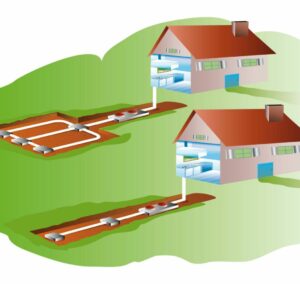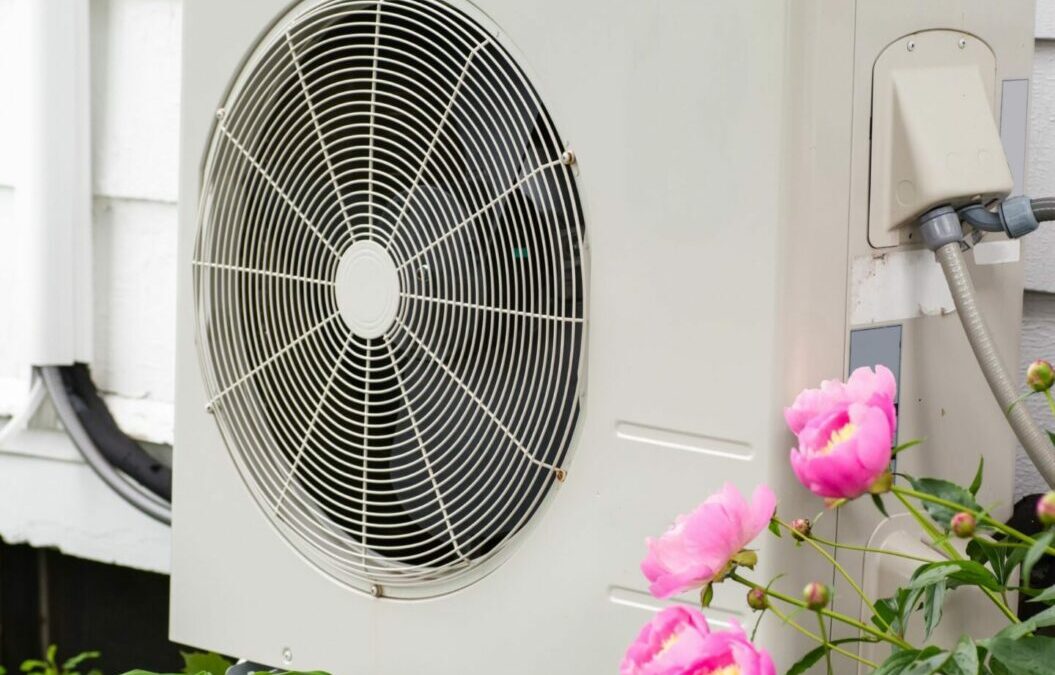Your HVAC system is like a body. Many different parts work together to keep serving the same goal by completing unique jobs. Like a body, when one part ceases to function properly, the rest of the system goes haywire. Unlike the body, though, you may not be familiar with every component of your HVAC system. Today we are going to learn about one part of that system: heat pumps.
So, How Does A Heat Pump Work?
Heat pumps fall under the H part of HVAC in that they take air from the outside and transform it into cool or warm air indoors. While a traditional furnace creates warm air, a heat pump transfers air from outside to indoors. That said, to adequately answer the question, “how does a heat pump work?” we need to take a deeper dive into the two main kinds of heat pumps: air-source and geothermal heat pumps.
How Does A Heat Pump Work: Air-Source Edition
The first type of heat pump we will explore is the air-source heat pump. An air-source heat pump utilizes an indoor coil, an outdoor coil with a fan, and a compressor. The fan allows air to be brought into the heat pump from the outside, traveling through the outdoor coil to reach the compressor. As the air travels, the refrigerant within the coils evaporates the heat from the air into a gas, which is then released by the indoor oil to the house. A compressor unit can be switched to either heating or cooling mode, depending on your needs.
How Does A Heat Pump Work: Geothermal Edition
The alternative to an air-source heat pump is the geothermal heat pump. These heat pumps transfer energy from the ground or water in order to produce heat indoors. While the energy transfer process is the same as that within an air-source heat pump, geothermal heat pumps come in either an open-loop or closed-loop system.
An open-loop geothermal heat pump system uses well- or surface water as a power source, though this system depends on there being a consistent source of surface water from which it can draw energy. A closed-loop system, on the other hand, utilizes an antifreeze solution that is kept moving throughout the heat pumps as a constant power source. There is another type of closed-loop system that uses a constant, reliable body of water such as a pond or lake.

Which One Is Better?
Now that you’ve made it this far, you’re probably wondering which kind of heat pump is better. The geothermal heat pump is considered to come with more advantages than its air-source counterpart, specifically in its longer lifespan and higher efficiency. However, the air-source heat pump is cheaper, and requires less space, making it a somewhat more convenient option. In determining which one is better, it depends on what you are looking for in a heat source. Do you have enough space on your property with a constant water source to implement a geothermal system? Does an air-source heat pump make the most sense for what you need? These questions will help you determine which type of heat pump is better for you and your home.
Fresh Air Duct Cleaning Is Here For You!
Now that you know how a heat pump works, you will be better prepared to handle any issues they might face when they arise, whether you decide to get an air-source heat pump or a geothermal heat pump. But what about your other HVAC needs? The good news is that Fresh Air Duct Cleaning is here for all your HVAC maintenance and repairs, so contact us today to get started.

